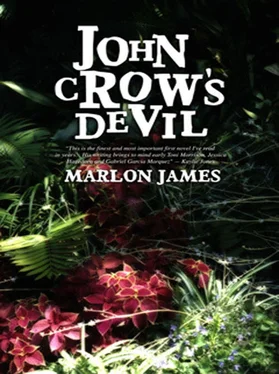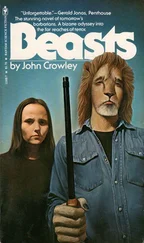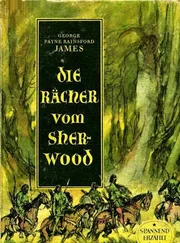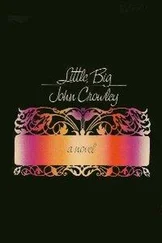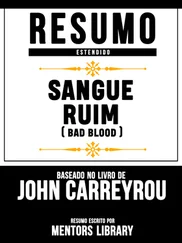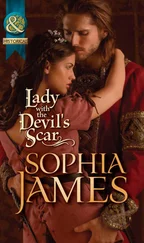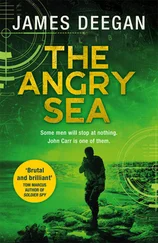Marlon James
John Crow's Devil
To Ché, that other revolutionary,
and to my mother, who must not read this book.
I wish to express my sincere thanks to all the following, who taught me that contrary to the name below the title, one person does not a book make:
Kaylie Jones, my editor, mentor, and friend, who saved this novel in a way that I will reveal one day; Colin Channer, Kwame Dawes, Justine Henzell, and Calabash; Elizabeth Nunez; Charlotte Wasserstein; victims who read the first draft of the manuscript: Danielle Goodman and Kwesi Dickson; Johnny Temple; everybody at Hallin Bank; the Cowans; James Hill Family; Clint and Elizabeth Hill; Ingrid Riley; Simon Levy; the Jameses, Dillons, and Messados; and any deserving person I completely forgot.
Three little children
With doves on their shoulders
They’re countin out the Devil
With two fingers on their hands
—“Dachau Blues,” Captain Beefheart
no living thing flew over the village of Gibbeah, neither fowl, nor dove, nor crow. Yet few looked above, terrified should an omen come in a shriek or flutter. Nothing flew but dust. It slipped through window blades, door cracks, and the lifting clay of rooftops. Dust coated house and ground, shed and tree, machine and vehicle with a blanket of gray. Dust hid blood, but not remembrance.
Apostle York took three days to decide. He had locked himself in the office as his man waited by the door. Clarence touched his face often without thought, running his fingers over scratches hardened by clotted blood. The Apostle’s man was still in church clothes: his one black suit and gray shirt with tan buttons that matched his skin, save for his lips, which would have been pink had they not been beaten purple three days ago. Clarence shifted from one leg to the other and squeezed his knuckles to prevent trembling, but it was no use.
“Clarence,” the Apostle called from behind the door. “Pile them up. Pile them all up. Right where the roads meet. Pile them up and burn them.”
Men, women, and children, all dead, were left in the road. Those who scurried home with their lives imprisoned themselves behind doors. There were five bodies on Brillo Road; the sixth lay with a broken neck in a ditch where the bridge used to be. Clarence limped, cursing the hop and drag of his feet. At the crossroads he stopped.
“All man who can hear me!” he shouted. “Time now to do the Lord’s work. The Apostle callin you.”
Faces gathered at windows but doors remained shut. Some would look at Clarence, but most studied the sky. Clarence looked above once and squeezed his knuckles again. A dove had flown straight into his face, splitting his bottom lip and almost scratching out his left eye. He felt as if more would come at that very moment, but the Apostle had given him strength.
“I talkin to every man who can stand. Heed the word or you goin get lick with friggery worse than any bird.”
Birds. They came back in a rush; in screams and screeches and wounds cut fresh by claws.
“You know what my Apostle can do.”
Clarence knew the houses where men hid. He hopped and dragged to each one and hammered into the door.
“Sunset,” he said.
Three days before, when noon was most white, the village had killed Hector Bligh. Reckoning came swift, before they were even done. God’s white fury swept down on them with beaks and claws and the beat of a thousand wings.
But there were things the villagers feared more than birds. One by one they came out and the men threw the bodies on the bonfire.
“This was judgment,” said Apostle York. He had emerged from the office after the fire was lit. The Apostle’s face had no scratch. “Judgment!” he shouted over the brilliance of the pyre and the crackle and pop of burning flesh. “Judgment,” he said again in morning devotion, noon devotion, evening devotion, night mass, penitence prayer, children’s prayer, women’s prayer, blood atonement, prayer for the saints, and the School of Boy Prophets. From that day, the incident was never to be spoken of lest God again unleash his wrath on Gibbeah.
The building had begun a week before the killing. With chopped down trees the villagers made a fence all around Gibbeah’s boundary. Then they surrounded it in barbed wire. Every city of righteousness had a wall, said the Apostle. This was God’s way of keeping holiness in and iniquity out. Sooner than expected, the fence was finished. It wouldn’t be long before nature hid wood and wire in the deceit of leaves, vines, and flowers. Soon Gibbeah would disappear from the map of men. Soon all would be spared from recollection but Lucinda.
She had also spent three days in a room, but her door was locked from the outside. Lucinda panicked whenever she trapped fingers in her gorgon hair. Her eyes popped from jet skin. She had believed the Apostle, for love and God had punished her for sin. Before she went mad there were two faces in the mirror, neither of them hers. After Hector Bligh’s death there were three. Bligh’s eyes snaked her. They tormented her in dreams. She screamed at him in the tiny room below the church’s steeple. The room stank of bird flesh. In a fit of rage brought on by the fever that madness carried, she struck the mirror and shattered it. But in each broken piece was another face. Three faces became ten, then a hundred and a thousand and still more. A million eyes that saw everything and judged like God. She could do nothing but scream. By day her room was dark, but at night she moved back and forth in the light, a gaunt silhouette one instant, a ragged chiaroscuro the next.
Human ash became dust. What dust would not cover, wind swept away. Gibbeah built a wall that sealed the village from memory. But within her walls Lucinda would not forget. His ghost lived with her now, his voice mimicked her cries, and his eyes saw her secret skin. The Apostle had called Hector Bligh a disgrace, abomination, and Antichrist.
She called him the Rum Preacher.
make we tell you bout the Rum Preacher. Even if you never live anywhere near them parts, you must did hear bout the Rum Preacher. After six years, false story and true story rub together so much that both start shine. People think that everything shoot to Hell after the Devil take hold of Lillamae Perkins, but if you did know Pastor Hector Bligh of the Holy Sepulchral Full Gospel Church of St. Thomas Apostolic, you would know him was on the road to Hell long before that.
Before Pastor Bligh come to Gibbeah nobody ever see a man of God drink. Some people say Second Book of John, verse one to eleven, say that Jesus turn water into wine, so him must did drink wine too. Three man who sit down outside the bar all day say that him is man after all and man have right to get drunk just as him have right to scratch him balls when him want to scratch him balls or beat him woman when she don’t act right.
Bligh drink like drinking goin out of style. All Saturday night when him should be readying himself for church, him down the bar drinking liquor and talking out people business. And when the time come to do the preaching, him don’t know what to say. We never see preaching like this yet. When Bligh drunk all you hear is mumble. When Bligh dry him sound like that mad captain in that Moby Dick picture that show at the Majestic. The preacher before him did have fire. Hector Bligh have nothing but ice. Maybe is fi we fault cause country people take things as them be, as if white man goin beat we if we change them.
Читать дальше
